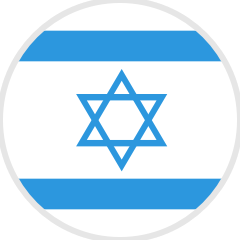Why Learn Korean? Here Are the Top 8 Reasons
Updated on 12th July, 2022
First things first. If you’re considering learning a language this year, that’s a fantastic idea! Second, I’ve a ton of reasons why you should learn Korean! Let’s get to them.
Is learning Korean worth the effort?
Learning a new language offers many benefits beyond just words and grammar. Enhanced cognitive development, cultural appreciation, and a gigantic amount of personal fulfillment are among them. And let’s face it, who couldn’t use a brain boost and some personal growth from time to time?
Is Korean worth learning, then? We all have different motivations for deciding which language to learn. Whether we hope to expand our career opportunities, communicate with a new friend, enhance our travel experience, or simply challenge ourselves, the language we choose should be a reflection of both our passions and our goals.
8 Reasons Why You Should Learn Korean Right Now
So why learn Korean, of all languages? Here are a few great reasons why you should that I want to share with you.
1. You’ll be in good company wherever you go
There are around 77 million speakers of Korean worldwide, putting it in the top 15 of all world languages. While the majority of native speakers can be found in South and North Korea, there are also hundreds of thousands of Korean speakers in Japan, Russia, the United States, and around the world. I think that’s a pretty valid reason why learning Korean is a good idea.
2. Learn the world’s most logical language writing system
The Korean written language Hangul, or Hangeul, was introduced in the 15th century by King Sejong, in an effort to create a written language that was better suited to Korean grammar than Chinese Hanja. It also served to improve the literacy rate among Koreans who could not afford to be educated in the Chinese language.
Hangul is basically a cross between an alphabet and a syllabary. Clusters of letters representing a single syllable of a word are placed together in one block. So, while Korean writing might look like a series of complex symbols, in reality it’s a collection of syllable blocks made up of easily recognizable consonants and vowels. That makes learning Korean easier than you’d think.
Let’s dive deeper into this.
한글
Han gul
The Korean alphabet officially contains 24 letters: 10 vowels and 14 consonants. If you also include double consonants and vowel combinations, the total increases to 40.
Consonants: ㄱㅋㄲㄴㄷㅌㄸㄹㅁㅂ
ㅍㅃㅅㅆㅇㅈㅊㅉㅎ
Vowels: ㅏㅓㅗㅜㅡㅣㅑㅕㅛㅠ
ㅐㅒㅔㅖㅢㅘㅙㅚㅝㅞㅟ
Korean vowels are based on three elements: a flat line (representing earth), a point or short line (representing the sun or sky), and a vertical line (representing human beings). Combinations of these three elements comprise all of the vowel formations in the language.
Hangul consonants are designed to resemble the shape of your mouth or the position of your tongue as you pronounce the sound. That means you can learn Korean pronunciation quicker than you’d expect.

Hangul was created to be both logical and efficient. So, while the Korean language does present a few challenges, learning the alphabet is not one of them.
3. Korean is actually easy to learn
I am often asked: Is Korean hard to learn, what with its different writing system and unfamiliar sounds?
As we’ve explained, its logical alphabet, Hangul, makes it much more straightforward to grasp the basics of the language than you ever thought possible. Plus, the fact that Korean is not a tonal language makes it easier to pronounce and speak.
We encounter a similar scenario when it comes to grammar. Having no verb conjugations or noun genders to repeat and memorize ad nauseam, you’ll be stringing words and making meaningful conversation in no time!
Lastly, there’s the phenomenon known as Konglish – the incorporation of English words and phrases into the language that creates hybrid terms English speakers can instinctively recognize and understand. Think loan words such as 에어컨 [e̞əkʰən] (eeokeon) for aircon, 핫도그 [ha̠t̚t͈o̞ɡɯ] (hatdogeu) for hot dog, or 텔레비 [tʰe̞ɭɭe̞bi] (tellebi) for television.
And that’s a whole bundle of reasons why you should learn Korean.
Tip: Find out how to learn Korean in record time with our guide to The Fastest Way To Learn a Language.
4. Be unique in your language choice
While some linguists suggest that the Korean language originated with the Altaic language family (i.e., Mongolian, Turkish), and others suggest the Uralic (i.e., Hungarian, Finnish), Korean is often classified as a language isolate. In other words, the Korean language is not related to any other language on earth!
This may seem strange, given the large influence of both China and Japan throughout Korean history. Korean does share some attributes with Mandarin, including many borrowed Chinese words and the use of some Hanja characters. But unlike Mandarin, you don’t need to learn any tones or memorize thousands of Hanja symbols!
Korean and Japanese share the use of particles – small suffixes or short words which follow nouns – as well as a subject-object-verb order. But unlike Korean, Japanese requires the memorization of two alphabets (hiragana and katakana), in addition to the Chinese hanja.
While it is widely debated which of the three languages is the most difficult to learn, in the end, all are beautifully crafted languages steeped in tradition and culture.
5. Time to put Korea on your must-visit list
Caught the travel bug yet? You will once you’ve chanced upon some photos of the mesmerizing landscapes and seascapes that Korea can offer. Cue in Jeju Island, named one of the New Seven Wonders of Nature.
Natural beauty aside, the country’s rich historical architecture is stunning to say the least, with palaces, temples, and shrines abounding across the land. These, coupled with the more contemporary steel-and-glass-clad skylines such as in the southern capital Seoul, provide an eclectic mix of natural and urban spaces to delight locals and visitors alike.
It’s pretty clear to me why learning Korean will give you an added advantage when visiting the place. As you make your way through its quaint villages and cutting-edge modern cities, speaking the language with the locals will help you make meaningful connections at every stop.
6. Feel part of a fantastic culture
The use of honorifics – titles or words indicating high status, politeness, or respect – in the Korean language can definitely present a challenge for new speakers.
Nouns and verbs are continually modified to reflect the age and status of the listener, and the relationship between speaker and listener. For example, when speaking to a customer or client, a manager or superior, someone younger or less experienced, a child, a grandparent, or a friend – all of these situations require the use of a different honorific.
While it does complicate language learning, honorific speech is a window into the highly respectful and honor-filled culture of the country.
K-pop fans, anyone?
Koreans are also well-known for their aesthetic and artistic culture. In the past few decades, a phenomenon known as the Korean wave brought forth a wealth of Korean K-pop music to the world. Think Psy of Gangnam Style fame or the boyband BTS.
Korean film and television have also quickly found their way into international markets over the last few years. Just take a look at the sheer volume of K-Drama options on Netflix, including the hugely popular spine-chilling series Squid Game.
Learning Korean provides a great opportunity to enjoy Korean music, film, and television on a whole new level, in their original production language!
7. Stay on top of international affairs
The Korean Peninsula or South Korea often make news headlines, with the country working tirelessly to expand its global diplomatic connections. What’s more, its local economy is bullish, and its international investments are worth keeping an eye on.
As a result of its important position on the global affairs stage, it looks like Korean is worth learning, now more than ever. It will help broaden and update your knowledge of world economy and politics, as this East Asian nation continues to build relations and strengthen its international standing.
8. Your career will thank you
Thanks to its global appeal, Korea is home to many large multinational companies including LG, Samsung, and Hyundai. For those hoping to live and work in Korea or work for a Korean company abroad, learning the Korean language is an immeasurable asset.
With the Korean economy ranking among the world’s top 10, it’s a great time to join the Korean wave!
And there you have it: my top 8 reasons why you should learn Korean. If all of these aren’t reasons enough, here’s one more great incentive to study Korean straight away: the language is available in the Fluent Forever app! All you need to do is download the app to start reviewing and learning your new target language. Ready?


















